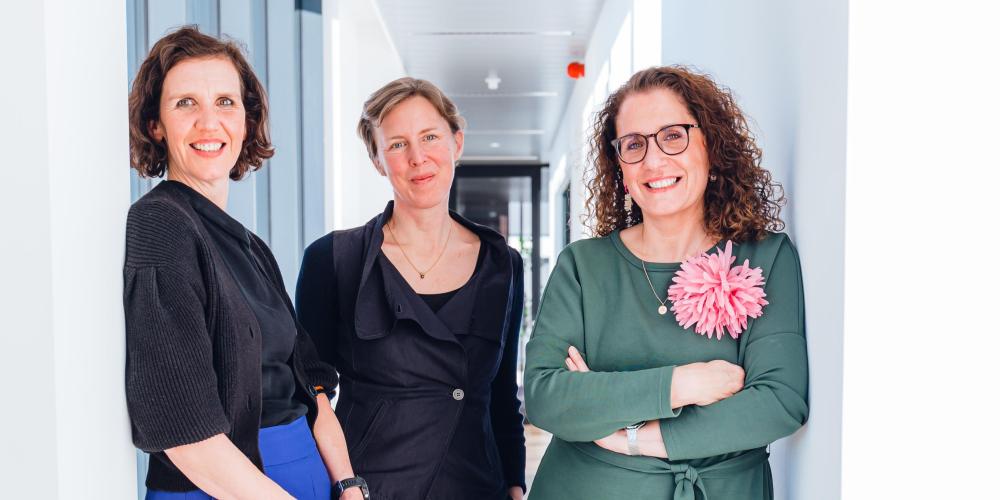
Former breast cancer patient and fund founder Yamina Krossa invited authors Silvia Brouwers and Tine Maenhout to create a podcast based on their newly released book “It’s cancer. What now?” In eight episodes, Tine and Silvia speak openly and honestly with experts and people with firsthand experience of cancer. The project is a collaboration between the Yamina Krossa Fund of the Vrije Universiteit Brussel (VUB) and the AFAS Foundation.
Although the journey is different for everyone, there are emotions and experiences that almost all cancer patients share, regardless of the type of cancer or treatment they receive. And while feeling understood is the greatest support for a cancer patient, it is not always easy for everyone to talk about the disease. That is why Yamina Krossa of the VUB Yamina Krossa Fund invited authors Silvia Brouwers and Tine Maenhout to create a podcast based on their newly released book “It’s cancer. What now?”
In eight episodes, Tine and Silvia speak openly and honestly with experts and people with firsthand experience about topics that are often difficult to discuss. These include fear, death, emotional rollercoasters, and chemotherapy—but also hope, the loving support of people around you, and zest for life.
In episode 3, Yamina Krossa herself shares her perspective as someone with personal experience, discussing the impact of a diagnosis on your surroundings. How do partners, children, friends, and colleagues cope with the disease? In the final episode, Prof. Damya Laoui talks about the future and the hope for a cure. VUB-VIB Prof. Dr. Ir. Damya Laoui is developing a cancer therapy to prevent relapse and metastasis. Her research team discovered that certain immune system cells within tumors—dendritic cells—can protect the body against cancer. By capturing fragments of cancer cells, these cells can both activate the immune system’s soldiers and generate an immune memory against the cancer. Thanks to the support of the VUB Yamina Krossa Fund, her team can prepare the first clinical studies.
More information about the podcast and the book is available at www.hetiskanker.be.